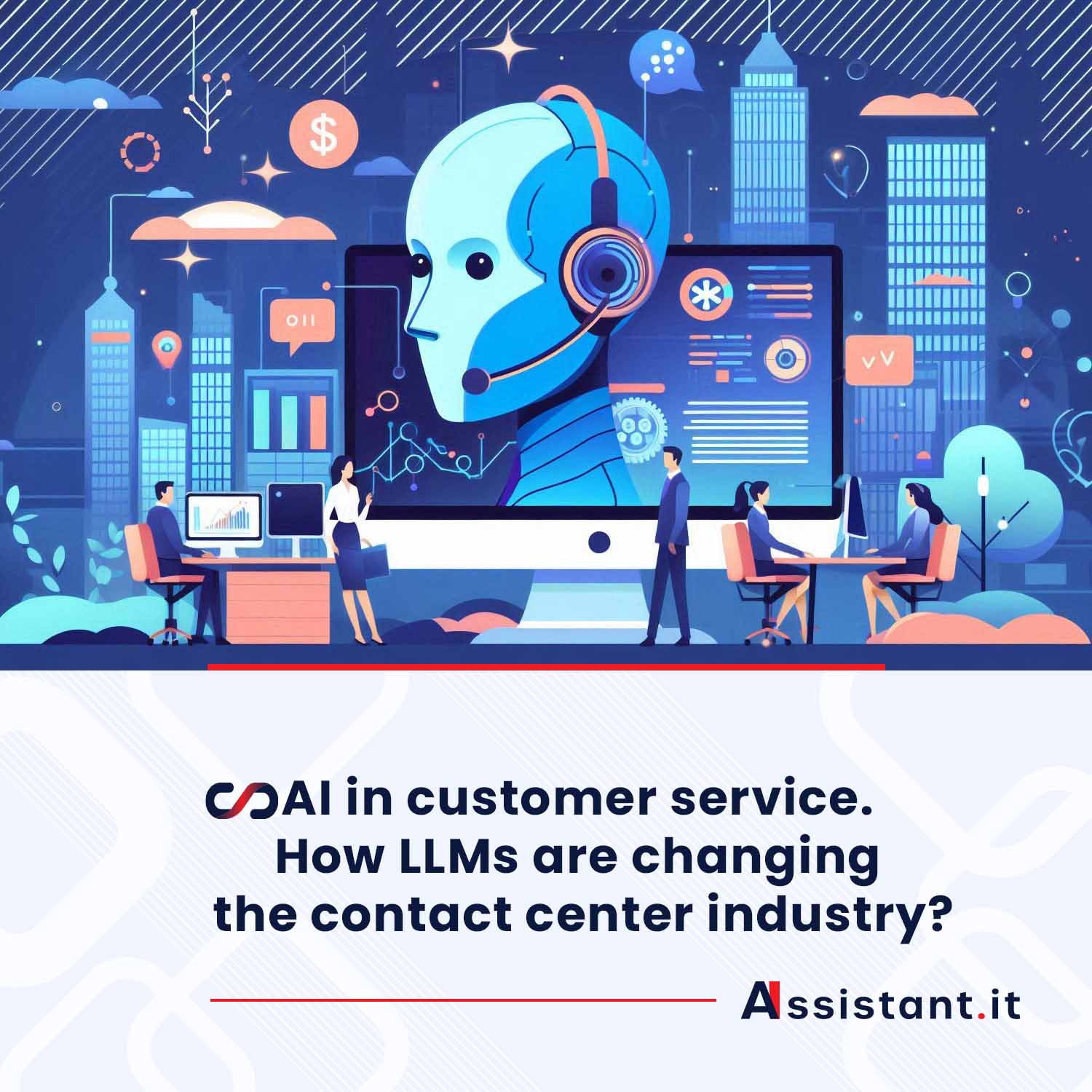In recent years, artificial intelligence (AI) has been gaining traction across various sectors, and its application in customer service, particularly in the contact center industry, is reshaping traditional interaction models. Large language models (LLMs) are emerging as a key tool, enabling companies to improve service quality, enhance operational efficiency, and personalize customer experiences. In this analysis, we will explore the impact of LLMs on the contact center industry and the benefits they bring.
Understanding LLMs and Their Role in Customer Service
Large language models (LLMs) are capable of processing and generating natural language. With advanced data analysis and the ability to learn from extensive text datasets, LLMs can understand conversational context, respond to customer inquiries in real time, and generate personalized replies.
LLMs enable the creation of intelligent chatbots that can handle basic customer inquiries 24/7, significantly reducing the workload for customer service teams. AI can automatically classify and route requests to the appropriate departments, speeding up response times and improving efficiency. LLMs can address frequently asked questions (FAQs), relieving contact center employees and allowing them to focus on more complex tasks. Automated responses can be generated using integrated knowledge bases, reducing customer wait times and boosting service efficiency.
LLMs also act as virtual assistants, supporting contact center agents during customer interactions. They can suggest responses, provide real-time information, and analyze customer history to facilitate quicker problem resolution. This is particularly effective for complex inquiries, where the model can provide detailed product information, company policies, or even analyze customer sentiment.
Additionally, by analyzing customer behavior data, LLMs can recommend products or services that best suit customer needs. Language models can also analyze customer tone and emotions, enabling more tailored responses and fostering empathetic interactions.
Implementing such models does not necessarily mean eliminating the human factor. LLMs can support contact center agents by providing them with valuable information and suggestions during customer interactions. Moreover, AI can be used to analyze customer interactions, identifying areas for improvement and tailoring training programs.
How Does This Transform the Industry?
It’s important to note that while LLMs are advanced, they may sometimes struggle to understand complex contexts or industry-specific terms. In these cases, the human factor and collaboration between LLMs and employees can be crucial. Furthermore, the use of customer data in LLMs raises concerns about privacy protection and compliance with regulations like GDPR.
Although LLMs can generate intelligent responses, their output is not always error-free. Models may provide inaccurate or misleading answers, particularly for more complex inquiries. Monitoring the outputs generated by the model and implementing appropriate corrections is essential. Moreover, integrating LLMs into contact centers requires alignment with existing tools, such as CRM systems or knowledge bases. This process can be time-consuming and costly, requiring the technology to be adapted to the specific needs of a given company.
Nevertheless, as technology advances, LLMs will become increasingly sophisticated, unlocking new possibilities in customer service. Combining LLMs with other technologies, such as sentiment analysis or speech recognition, could further enhance service quality. As LLMs evolve, their role in contact centers will become even more significant. Contact center employees will be able to focus on more strategic tasks, while routine interactions are fully automated. Companies that invest in these technologies early will gain a competitive edge by offering faster, better, and more personalized customer service.
In summary, the use of large language models in the contact center industry has already revolutionized how companies communicate with customers. Automation, personalization, and employee support are just some of the benefits that AI brings. As technology continues to develop, we can expect even more advanced solutions that will shape the future of customer service. However, human oversight will remain essential to ensure the effective and ethical implementation of these tools.
Discover how the AIssistant.it system can accelerate daily tasks and processes in your company with the help of AI tools: https://aissistant.it/contact/
Graphics by: Microsoft Designer AI


